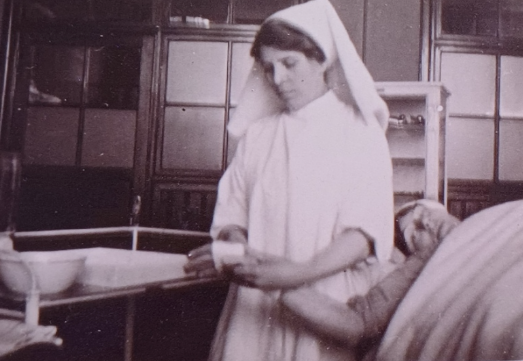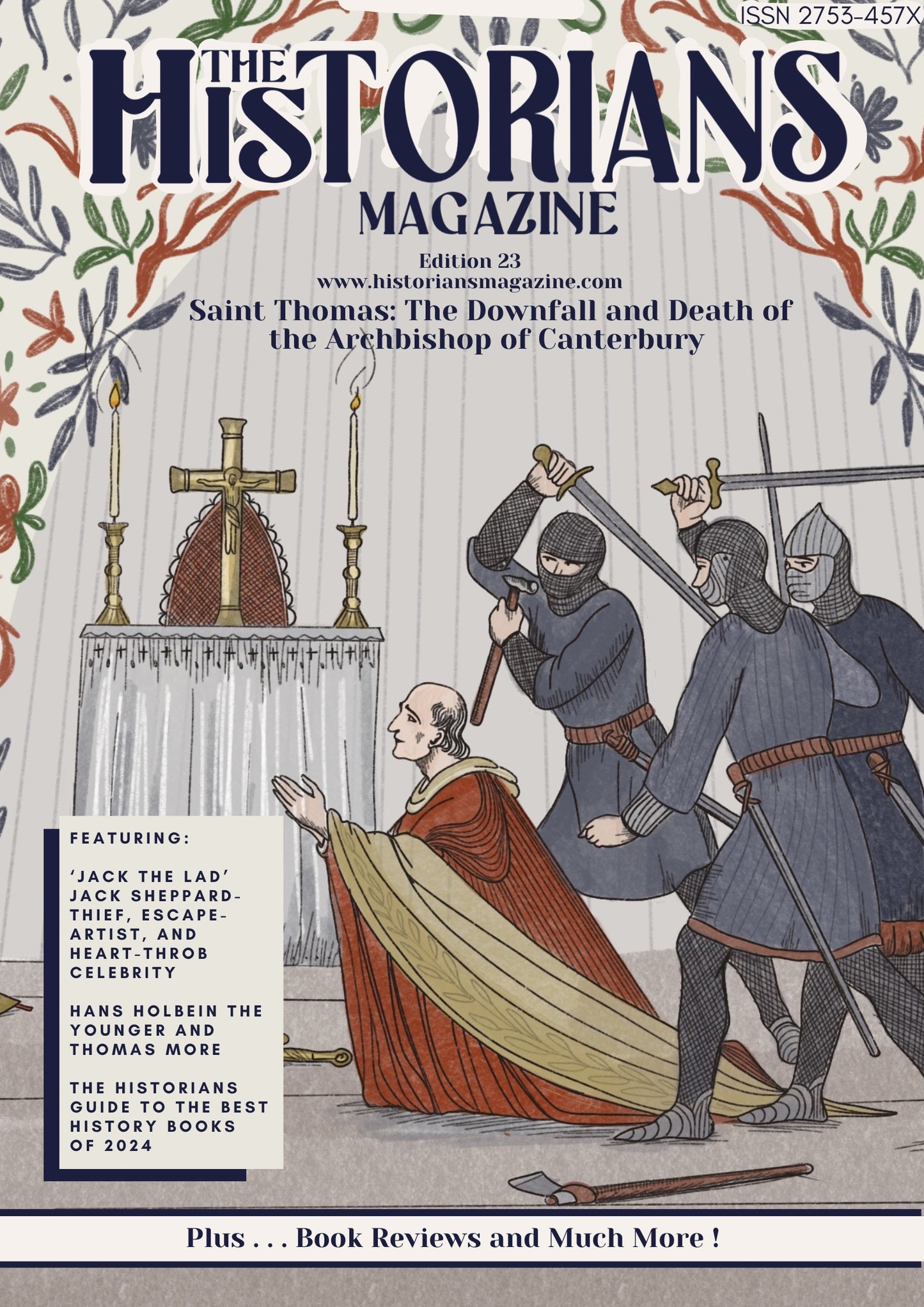
Emma Duffin: A nurse's legacy of courage
Share
Emma Duffin was born on the 8th of November 1883, into a privileged and well-connected family in Belfast. She was the fourth of nine children. Growing up, she was educated by her mother and a German governess. Her governess likely played a significant role in developing her linguistic skills, as Emma would later work for the van Bochen family as a governess in Pomerania, Germany, during the period from 1911 to 1912. Her knowledge of the German language would also prove invaluable during the First World War. Emma attended Cheltenham Ladies’ College and later studied at a school in Shrewsbury in 1903. In addition, when she returned from College in Shrewsbury, she took classes at the Belfast Art College, as she was interested in pursuing a career in book illustration. In her own time, she illustrated children’s books written by her sisters, Celia and Ruth.

World War One (1914-1918)
Emma Duffin was called up in 1915 as a nurse when she was 31. As one of the older volunteers in the Voluntary Aid Detachment (VAD), she had no prior nursing experience before signing up. Emma was being posted to Egypt. Once in Egypt, she found that the accommodation she was going to stay in was not going to be luxurious. She wrote in her diary, “We were all a little horrified at the sleeping accommodations. There were 31 bunks in our ward, but in ward D, which was lower down, there were 60, and to make matters worse, the paint there was wet and of course smelt dreadfully.”
Emma spent her six-month service in Egypt, where her knowledge and experience grew.
After those six months, her application to serve another six months was accepted, and in late May 1916, she was posted to France at Le Havre Isolation Hospital. France was no different from Egypt — there were days when she would go without a change of clothes and work from morning to night without any breaks.
In autumn 1917, she was posted to Hotel des Emigrants, where the living and working conditions improved. Emma’s ability to communicate in German came in handy when dealing with several wounded German prisoners. In her diaries, she speaks very sympathetically about the German prisoners and even became very close to two German soldiers.
In spring 1918, Emma was on the move again; she was sent to Quai Hospital in Canada. Here, she was tasked with treating soldiers who had been gassed. However, over time, she developed symptoms of secondary gas exposure, as she spent much time in contact with the soldiers’ uniforms. She wrote in her diary, “One day I spent the whole morning washing out their eyes and being off duty from two to five I dashed off, caught an ambulance, and made my way to sit by the sea.” She then described how she began to feel unwell: “I began to feel unaccountably sick.” Emma was sent to the sick ward, where she was able to rest.
Towards the end of the war, Emma was sent to Calais, where she would later receive the news that the war had ended. She recalled, “At last, the Armistice came. It seemed impossible to believe it. Matron, with her eyes nearly popping out of her head with excitement, burst into the mess in No.8 and announced the Armistice. It was my birthday, and it seemed a good birthday present.” The news came three days after her thirty-fifth birthday. However, even though the war had ended, Emma still had to continue caring for the wounded. It wasn’t until the early months of 1919 that she was able to return to Belfast.

Emma Duffin in the operating room, image courtesy of Public Record Office of Northern Ireland (PRONI)
World War Two (1939-1945)
When the Second World War broke out, Emma started a new diary. However, she was unsure if she would take an active role in this war. At the very least, she decided she would document it from the public’s perspective. In early March 1940, Emma was appointed commander of the VADs, although this role was largely administrative. After taking on this position, she spent two weeks furthering her training at the main army base in Aldershot, Hampshire.
Upon her return to Belfast, her administrative tasks continued at the Stranmillis Military Hospital. Before April 1941, air raids did not seem to be a major cause for concern in Northern Ireland. However, once Germany took control of France, the threat became much more significant. Emma wrote, “On Tuesday, April 15th, 1941, I was awakened by sirens at 10.45.” That night, there were 800 fatalities, most of them civilians. She later reflected, “We realised this was a real blitz, but not until the next day did we know how severe it had been.” Her role became much more difficult, as she had to walk around St George’s Market accompanying families searching for their lost loved ones after the Blitz. She wrote, “Will I ever bring myself to buy flowers and vegetables there again?”.
Afterwards, Emma returned to her ‘normal’ duties as VAD commandant at Stranmillis Military Hospital. Over time, her diary entries became less frequent, and on 2nd September 1945, the Second World War ended.
Post-War (1945-)
In 1967, Emma revisited her diaries and wrote in blue ink, reflecting on her experiences as a nurse in both wars. She wrote, “It had been a hard life, but a great experience, never to be regretted. We had seen great suffering but greater courage…. we had learnt the value of comradeship and that barriers between classes could be ignored: an orderly could be a friend as well as an officer, a patient could be a brother.” She continued, “To me, some of those men are more real than those I met perhaps a week or so ago. I can never forget them, as many I know will remember me. I was their ‘sister’ in both senses.”

Blue plaque dedicated to nurse Emma Duffin, University Square, Belfast, source: Wikimedia Commons
Emma Duffin requested that her diaries be placed in the public records office of Northern Ireland after her death. She passed away on 31st January,1979. In 2017, she was honoured with a blue plaque at her former home on University Square, Belfast.



